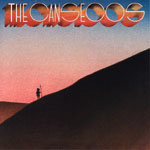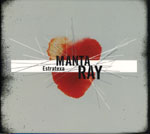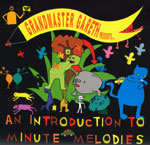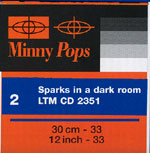Transitory Snapshots | |

| On Ends In Light (Drive In), Brighton trio Air Formation make the sound of lilac fields melting in the sun. They make sounds that swallow the heat of the highest of summer's days through parched lips, licking salt from the wounds of hearts gouged roughly on tree-trunks forgotten for ages. Air Formation are shoegazers. There was a time I would have spit on Air Formation's collective fringes for this, but in these times I am less vindictive; am more inclined to grant whims of forgiveness and indulge instead in idle mind meanders that ultimately lead nowhere and everywhere. Vapour trails in hearts scarred by acid kisses. Stretched out and waiting for Godard on a Corbusier/Perriand Chaise Lounge beneath the stars of a crystalline Parisian night. A preacher in New England. Whatever. Air Formation maybe sound like the ghosts of Seefeel, following the furrows ploughed by My Bloody Valentine when they were Loveless and lifeless (I always preferred MBV when they were raucous and truly bloody, as on their nadir 'Feed Me With Your Kiss'). Or maybe they're the siblings of the Field Mice when they were tilting at windmills; Quixotic marauders with guitars levelled at beach huts. Moving right along then, hands up who remembers Shadowy Men on a Shadowy Planet? Their moment of fame came with the theme tune to the iconic Kids in The Hall comedy show; the show that truly failed to change the face of popular culture in the way it deserved, possibly because it was just too off-beam to make it past the depths of night-viewing, or possibly too because it was just too damn Canadian. Well Sadies remind me of their similarly Toronto based predecessors Shadowy Men... particularly on the ace instrumental 'Lay Down Your Arms' that kicks off their fine Stories Often Told album. It's the Hank Marvin twang that does it, and that's no bad thing of course. It's also no bad thing that for the rest of their fourth album the Sadies come over variously like Gram-era Byrds scoring soundtracks for wild suburban spaghetti westerns, or Giant Sand jamming with Beachwood Sparks in a scorched Georgia O'Keefe landscape. In other words good time country-psych with a dark eye on the bar and a moody heart on its sleeve. |

| Not sure what they're putting in the water in Toronto these days, but it must be something good. Hot on the heels of labelmate Matthew Hart in his Russian Futurists guise come The Cansecos. Effectively the duo of Bill Halliday and Upper Class Recordings supremo Gareth Jones, Cansecos have made an album that bristles with eclectic charm and melodic wisdom. At their finest, Cansecos make the kind of Pop you might imagine being made if Brian Wilson hooked up with Tom Jenkinson; all rattling neurotic beats fuelled by harmonies that float from the ether. With twelve tracks that dare to make the assumption that blending beats and electronics with a symphonic scope and an ear for a tune can be something so much more fulfilling than saccharine mall-muzik or dreary academia, Cansecos similarly revive the kind of faith in a Sound of Now that the Sea and Cake so effortlessly manage with each and every outing. It's delicious, divine stuff. There are similarly shades of The Sea and Cake on Chris Whitley's Hotel Vast Horizon (Fargo), particularly on the shuffle of 'Blues for Andre', although Whitley's voice is far from the sepulchral wonder of Sam Prekop. Instead, the voice is somewhere out in the Richard Buckner territory; sandpapery soul with a country twang. Musically too Whitley treads similar paths to label-mate Buckner, although it's more in tune with the sound of, say, Devotion and Doubt in that it's about exploring a Country peppered by loping post-rock outcrops. It's an intriguing landscape. |

| Spain's Manta Ray inhabit intriguing landscapes on their Estratexa album (Acuarela) too, although theirs is more a place where motorik rhythms set up shop with the ghosts of PiL and Pixies. If that sounds marvellously odd, then that's all for the best because Manta Ray sound oddly marvellous, not least on opener 'Take A Look' which reverberates like Appliance finding themselves at the end of the '70s being spooked by John Lydon recording his Metal Box vocals. Elsewhere it gets altogether noisier, and 'Estratexa' grinds into action like Pixies' circa Doolittle before settling into a groove that reaches into your gut and pulls out handfuls of entrails. 'Ebola' meanwhile dives straight into all-out Rock action, emerging from an Isn't Anything era My Bloody Valentine heat haze with squeeling electronics and guitars set on overdrive. Then it's back to the outer reaches of the stratosphere with luxurious bass lines anchoring the raggedy melodic blips and beeps of 'Rosa Parks', before album closer 'Ausfahrt' slips beneath the waves with a haunted melody that recalls the kinds of eerie psychedlia peddled so magnificently by Clinic. Estratexa is already on my short list of albums of the year. Okay, so who remembers that song 'Short Shorts'? The Royal Teens, wasn't it? Back in 1958 I do believe, not that I was even alive at the time, nor even a flicker in my parent's eyes. Well, Buddy Randall, 15 year old member of the Royal Teens went on to later join the terrific Knickerbockers, whose double CD Sundazed set has been playing a lot round these parts lately, which is an aside really because what I really wanted to talk about was the whole notions of short, short songs. I mean, how do you fit 99 artists onto one compilation CD? You give them all just forty five seconds. This is the basic premise of the adventurously titled 45 Seconds Of... compilation on Simball records, a collection that pulls together artists like DJ Spooky, Lali Puna, Mia Doi Todd, Silver Apples, Rothko, Hood, Eight Frozen Modules, Martin Rev (obviously I'm picking out the names I know of here) and a whole horde of others to create a strange tapestry of sound that stitches snatches of enchanting vocals into a sea of quirky electronics. I'm not sure it's the best way to showcase your label's talents, but it's certainly an intriguing concept and a good disc to play as you go about the household chores. |

| Similarly diverting is Grandmaster Gareth's Introduction to Minute Melodies (Awkward records). I'm intrigued as to how you read that title: is it minute as in tiny, or minute as in time? Well, a bit of both as it turns out, since every one of the thirty tracks does indeed clock in at around the one minute mark, which means that the album ends up being a half hour long, which of course is about the length of all great Pop albums. Everyone knows by now that Pop is all about the moment, is about fermenting the moment down to the essence. As such, all great Pop songs are short, as evidenced by the mighty Beach Boys and Byrds singles, or indeed 'Velocity Girl' or, um, fishes around for contemporary equivalent and fails miserably, thereby displaying an alarmingly uncool connection to These Times... but you know what I mean, right? Right. Which isn't the same as saying all short songs are great Pop or that long songs can't be great Pop too, just... Yeah. Okay. So are all of Grandmaster Gareth's song's great Pop? Perhaps obviously, yes and no. Or maybe no, and yes. Conceptually, yes. Especially with titles like 'Dr Dre buys a pint of milk', 'the bongos are bust', 'squarepuller', 'the other girl from ipanema' and my own favourite 'the erotic Volvo drum machine'. And yes because the kind of playful eclecticism gone mad that fuses the whole album is heroically bedroom post-modernism which results in some great throwaway Pop, but no because, well, because sometimes throwaway Pop is just exactly that. Which brings me back to Yes again (no, Rupert, not that Yes) because actually the thirty 'songs' don't matter as individual moments; they matter only as contributory elements in the whole, and as a whole it does work as a terrific transitory snapshot of Pop life: a fleeting delight of mini-pop. |

| From mini-pop to Minny Pops (love these segues, huh?). I was never really aware of this Dutch electro quartet at the time of their early '80s Factory heyday and have no fond memories to tie into the sounds reissued on two LTM CDs Sparks In A Dark Room and Secret Stories. Maybe that's as well. Listening to the two now, it's the 1982 Sparks... album that connects most, sounding like DAF without the muscles and sweat, or Empires and Dance-era Simple Minds, with Wally van Middendorp's vocals doing a similar job to Jim Kerr's (before he discovered Stadium Rock) in that they become more of another instrument, the lyrics themselves being subverted in muddied and cloaked mumbles. With excellent sleevenotes by James Nice that place Minny Pops squarely within the realm of an early '80s interface that pitched accessible Pop conveniences and electronic experimentation in the same arena, these are two CDs that help illuminate what were even in their time the darker recesses of European music. That they still sound challenging, occasionally wayward and often bafflingly brilliant is testament to the enduring appeal of such experiments. File next to those Cabaret Voltaire reissues, and dress in a grey suit whilst listening. © 2003 Alistair Fitchett |